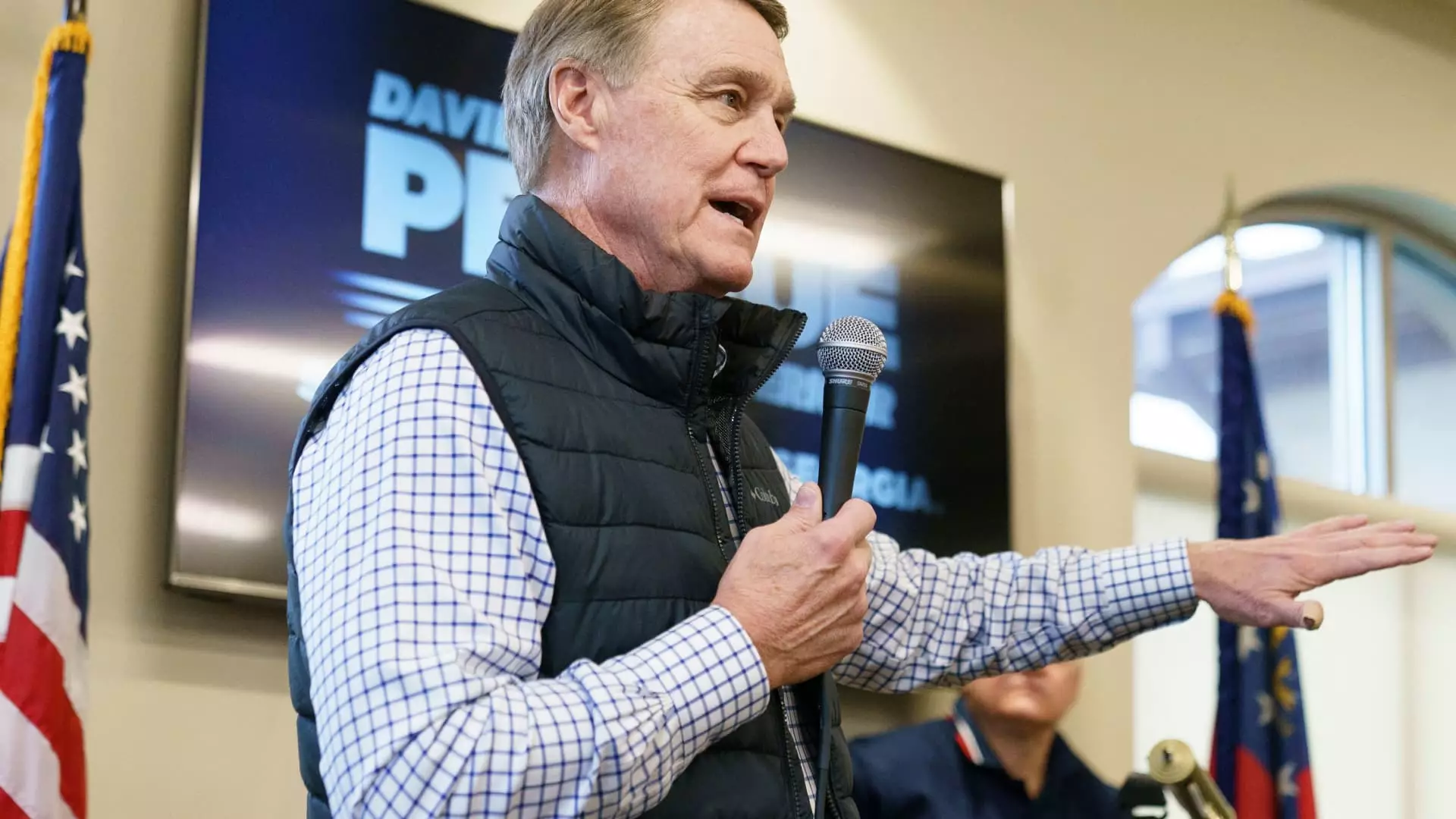The relationship between the United States and China is often characterized by a blend of cooperation and confrontation. An intricate web of trade interdependencies, political maneuvering, and cultural exchanges exists alongside escalating tensions, particularly around trade practices and national security. As the geopolitical landscape shifts, the appointment of key diplomatic figures becomes increasingly significant, reflecting the priorities and strategies of the incoming administration.
In this context, President-elect Donald Trump’s selection of former Senator David Perdue as ambassador to China signifies a strategic move to address these multifaceted challenges. Perdue, who boasts extensive business experience, particularly in Asia, is expected to leverage his understanding of the Chinese market as he aims to foster a productive relationship with Beijing. Trump’s assertion that Perdue will be “instrumental” in maintaining peace and steering U.S.-China relations underlines the necessity for ambassadors who possess both political acumen and business insight in an era dominated by economic warfare and trade disputes.
Moreover, the choice of Perdue aligns with Trump’s broader strategy focusing on a tough stance vis-à-vis China. The incoming president has openly discussed his intention to impose additional tariffs on Chinese products, especially if China does not take significant measures to curb the clandestine trade of fentanyl—a potent narcotic that has amplified public health crises in the U.S. This impending policy direction suggests a potential escalation of trade tensions, raising questions about the effectiveness of diplomatic interventions in the face of hardline measures.
Perdue’s nomination also represents a return to a historical precedent in American foreign policy—appointing former politicians as ambassadors to China. This practice has seen varying degrees of success in the past, such as the tenure of Terry Branstad, who attempted to exploit personal connections to ease trade frictions. However, previous attempts to resolve bilateral issues have often devolved into deeper confrontations. This trend emphasizes the unpredictable nature of U.S.-China relations, as well as the complexities faced by diplomatic envoys in navigating a landscape rife with competing interests and ideologies.
As analysts speculate about the future of these bilateral relations, the role of the ambassador emerges as crucial. With a rise in tensions anticipated, it seems that China may seek more direct engagement with high-ranking U.S. officials, potentially bypassing traditional diplomatic channels. The nature of this engagement raises questions about the ambassador’s influence and efficacy, suggesting that Perdue will need to adeptly manage his dual roles as diplomat and business facilitator.
The appointment of David Perdue embodies a pragmatic approach to an increasingly complicated relationship with China. As the U.S. gears up for another phase of challenging negotiations, the ramifications of Trump’s trade policies will heavily depend on how effectively Perdue can navigate the treacherous waters of diplomacy infused with economic strategy. As tensions rise, all eyes will be on this appointment, and how it shapes not only the future of U.S.-China relations but also the broader international community’s responses to one of the world’s most significant geopolitical dynamics.


Leave a Reply